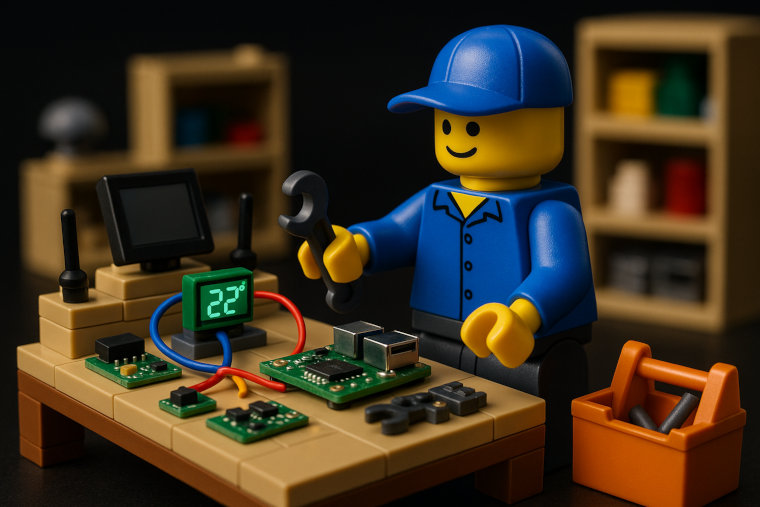Custom Devices

Table of Contents
When a Custom Device Makes Sense#
There may come a need where store-bought gear won’t solve a recurring problem.
That’s where small control boards, sensors, and tiny Linux computers can help—when a practical, local fix is better than another boxed gadget.
This is specialty work. It isn’t the cheapest path, and it shouldn’t be.
It’s for cases where downtime, waste, or repeated headaches cost more than doing it right once.
My Background (Plainly)#
- Programming — Linux, shell, Python, and practical glue code for small systems.
- Electronics — repair, simple control circuits, sensor wiring, and board-level troubleshooting.
- Small systems — Raspberry Pi / Le Potato, microcontrollers, and local dashboards.
Result: I can design simple, reliable tools that do one job well.
Local Use Cases#
- Freezer / fridge alerts — temperature sensor that texts you if it warms up (no cloud account required).
- Leak detectors — washer room / backroom sensors that alert before there’s damage.
- Machine helpers — simple counters or status lights for laundromats or shop equipment.
- Tiny file/media servers — local-first storage or a small dashboard that shows what you actually need.
- Bridges — make two devices “talk” when they weren’t built to (USB↔️network, simple protocol adapters).
If a sturdy off-the-shelf product exists, I’ll point you to it first.
Business visits like these are under House Calls.
Process (No Surprises)#
- Short conversation — what’s the problem, what’s it costing you, what’s “good enough.”
- Scope — I’ll suggest the simplest design I think will work. If this shouldn’t be custom, I’ll say so.
- Prototype — a small build to prove the idea.
- Field test — run it in place for a bit; adjust if needed.
- Install & handoff — label wiring, provide plain-English notes, and keep it serviceable.
I don’t charge for my learning time when research is needed. If a fix is viable after research, we’ll reconvene before work proceeds.
Local-First, No Lock-In#
- Works without a cloud account when possible.
- You own the hardware.
- Simple docs live with the device (and I keep a copy so it’s not lost).
- Standard parts where possible so repairs are easy.
Straight Talk on Cost#
Custom devices are cost-effective only when:
- the problem repeats,
- downtime is expensive, or
- the off-the-shelf option has already failed you.
If it looks like a gamble on an essential or expensive device, I’ll stop and tell you plainly. No fix, no charge.
What I Don’t Build#
- Safety-critical systems, medical devices, or large building automation.
- Big cloud stacks.
- Anything that needs a team to maintain.
Why This Matters Here#
Kirksville shops run on practical tools. My experience with Linux, programming, and electronics means you have options when standard gear won’t do.
If a small, focused device can save you money or hassle, we’ll build it. If not, we won’t.